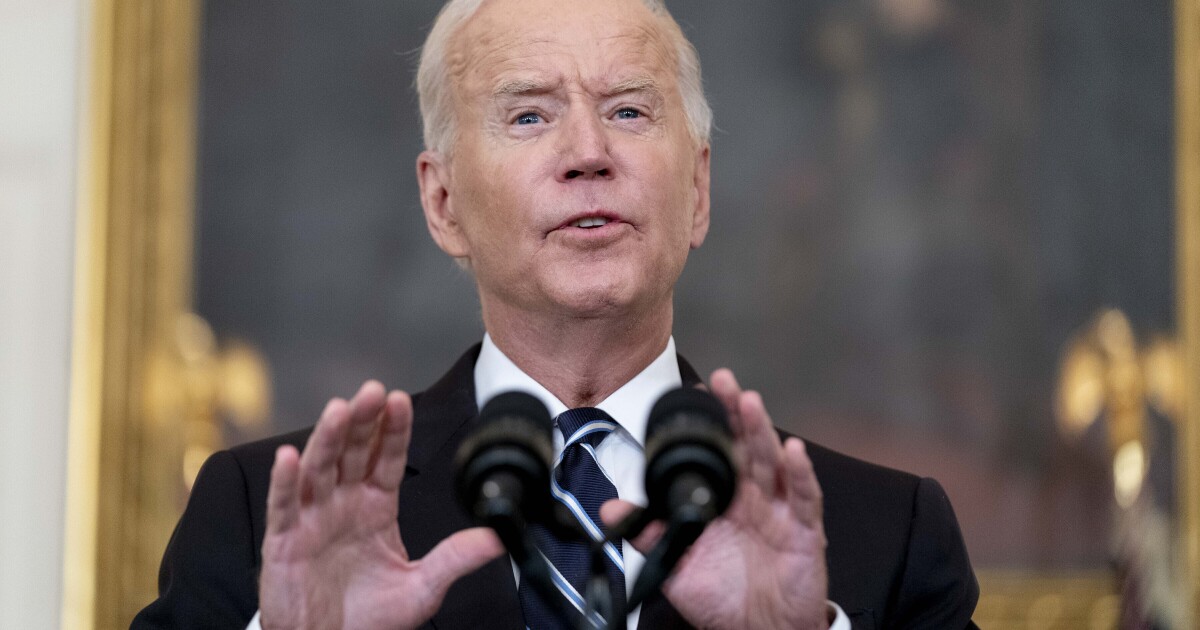Like the rest of the country, unions in the United States are divided over the mandatory COVID-19 vaccination proposed by President Joe Biden.
The National Nurses Guild applauded Biden’s proposal to require companies with more than 100 employees to vaccinate their workforce. The Federation of Teachers (AFT), which once said vaccine mandates weren’t necessary, now backs them. In Oregon, police and fire unions are filing lawsuits to block a face mask mandate for state employees.
The labor movement is divided: it wants to back its political ally Biden and protect its members from infection, but in the process they wonder if they are trampling on workers’ rights.
“Unions are a microcosm of the society we live in,” said Patricia Campos-Medina, executive director of the Worker Institute at Cornell University. “The same political division that we live now exists between the members of the unions.”
That gap complicates things for Biden in his efforts to control the delta variant of the coronavirus. The unions are a key member of the Democratic Party and help polish Biden’s middle-class image. Divisions in the president’s coalition make it difficult for him to implement new vaccination requirements.
Some unions representing federal employees have already objected to Biden’s effort to mandate inoculation among the federal government workforce, saying those issues need to be negotiated in contract talks.
In an indication of the importance of the matter to the Biden administration, the White House contacted union leaders ahead of the announcement Thursday of the president’s new policy and will continue to speak with them, said a government official, who insisted on preserve anonymity by talking about future plans.
Biden will require companies with more than 100 employees to order their workers to inject or test weekly for the virus. It will also order vaccinations for workers in the executive branch and federal contractors, without the option of using only diagnostic tests. The new requirement could cover about 100 million people in the United States.
The current momentum seems to favor the mandates. The AFL-CIO, the umbrella organization for many of the country’s unions, praised Biden’s mandates and plan in a statement on Friday. “The resurgence of COVID-19 requires prompt and immediate action and we commend President Biden for taking additional steps to help end this crisis. Everyone should be vaccinated as a step to stop the pandemic, “said the president of the plant, Liz Shuler, in the statement.
Two weeks ago, the AFT, the teachers’ union, ordered that its office employees be vaccinated and has become a strong advocate that workplaces require vaccinations. “Safety and health have been our guide since the beginning of the pandemic,” said Randi Weingarten, president of the union. He added that the union’s endorsement of the mandates “creates great support among two-thirds of our people and will create unrest in the other third.”
But many union leaders are hesitant to comment on the matter. Many of the Laborer’s District Council employers in western Pennsylvania, including hospitals, have begun requiring vaccinations. Every time their members complain, council manager Phillip Ameris tells them that it is not a union decision.
“What we tell them is, ‘We encourage our members to get vaccinated,’ but we tell everyone to see their doctors,” Ameris said. “We are trying to keep the issue non-political … go to your doctor and ask what is best.”
Some of the most heated opposition comes from law enforcement guilds. In Newark, NJ, police and fire unions from across the state protested alongside city hall on Thursday against the mayor’s mandate for vaccines.
Police unions from Chicago to Richmond have rejected mandates in their cities. In Portland, Oregon, the local police union got its members exempted from the city’s vaccination order, and a group of police and fire unions sued Gov. Kate Brown to block the state requirement for vaccinations for their employees. .
Simon Haeder, a political science expert who studies vaccine mandates at Pennsylvania State University, said it makes sense that the biggest resistance comes from police and firefighters. “The most conservative part of the labor movement, in terms of politics, are the police and firefighters unions,” he said, noting that the response to the coronavirus has become very polarized. “Yes, you belong to a union and yes, you want your workplace to return to normal, but the identity of being a Republican outweighs all that.”
Bill Johnson, executive director of the National Association of Police Organizations, said police officers are reacting like most Americans. “You have, as in the rest of the country, very strong opinions on both sides.”
But law enforcement unions can see the trend and want any mandate to be agreed to in the collective bargaining process, Johnson says. “There is a sense from the union’s perspective that the vaccination policy is basically going to be an obligation,” he said. “And we want a seat at the table when the implementation is discussed.”
Campos-Medina said mandatory vaccination is such an obvious public health policy that he hopes unions will accept it in the end. He compared it to indoor smoking bans, which angered some unions a few years ago but is hardly talked about at the bargaining table now. “We will come to the same,” he said.
The Weingarten union, like Biden, had initially opposed vaccine mandates and said persuading workers to inoculate was the best way, but after the delta variant skyrocketed cases this summer and filled hospitals in sick, the AFT reconsidered its position.
She, too, believes unions will eventually rally in support of a pro-mandate position, but adds that it will take time.
“The union leaders I speak to know that vaccines are really important,” he said. “What they’re trying to do is strike a balance between all these different services and the responsibilities that we have to our members.”
___
Associated Press reporters Josh Boak in Washington and Marc Levy in Harrisburg, Pennsylvania, contributed to this report.
–

